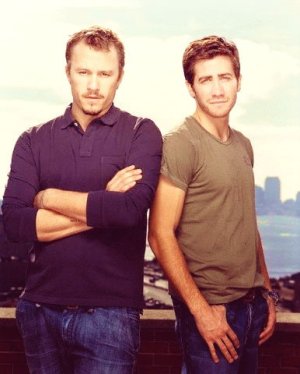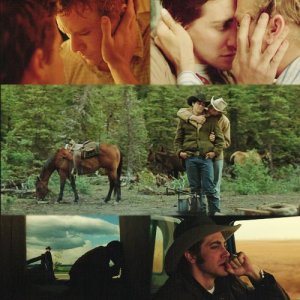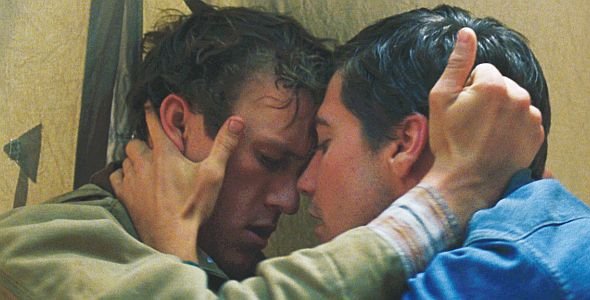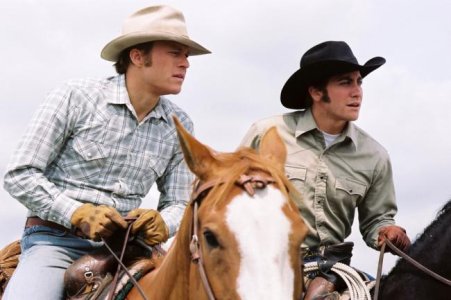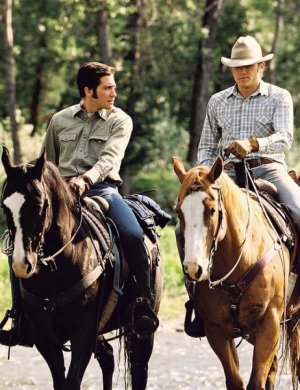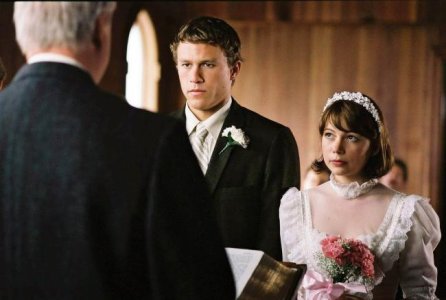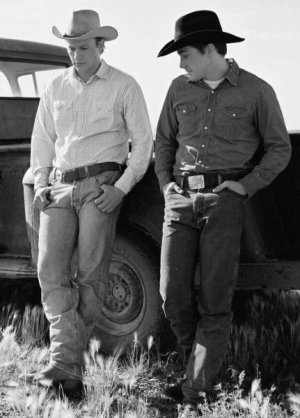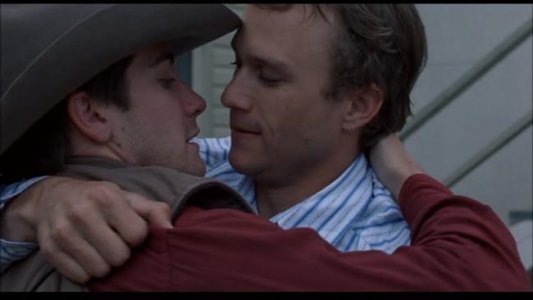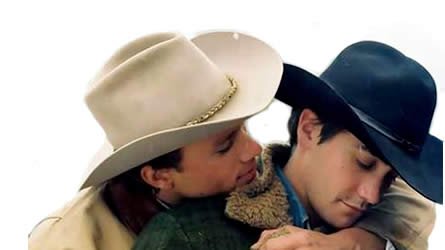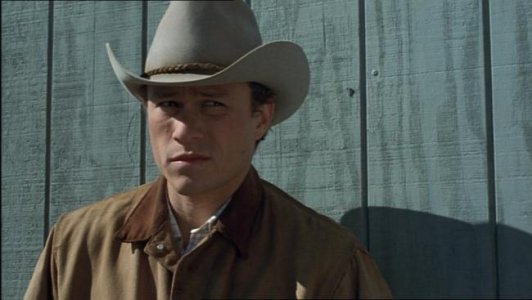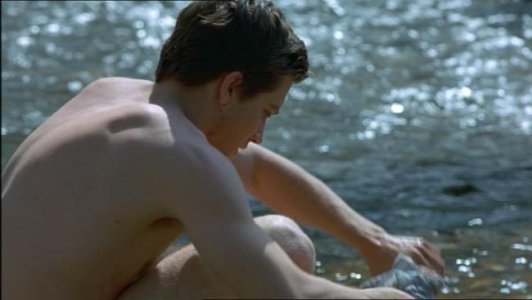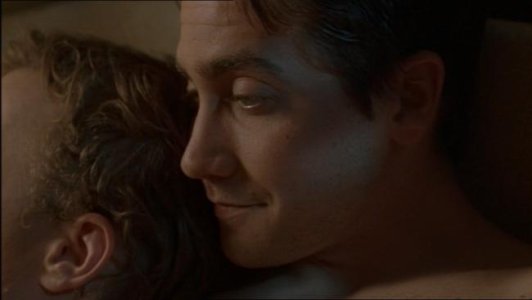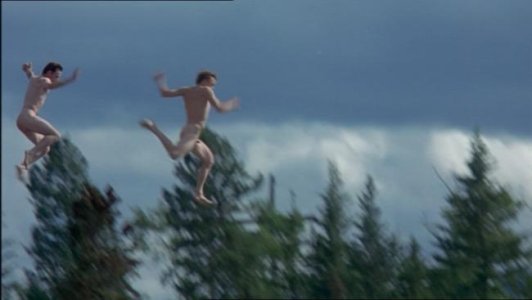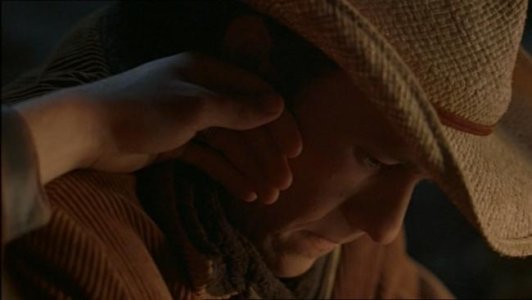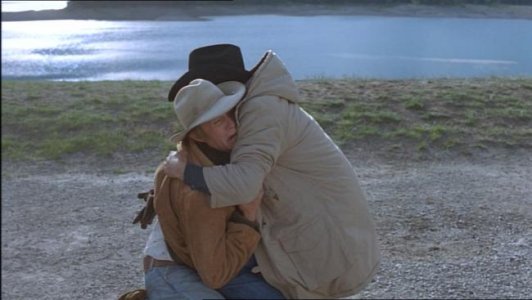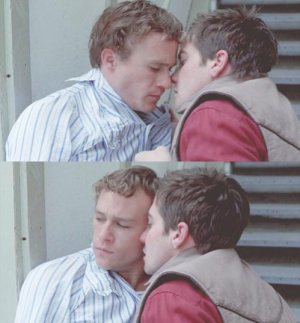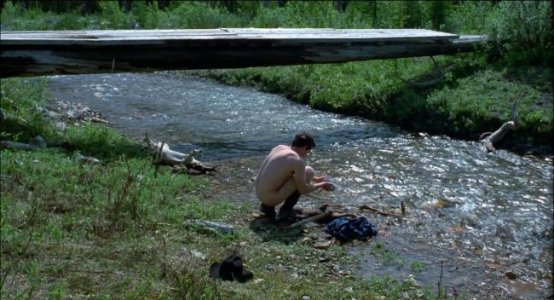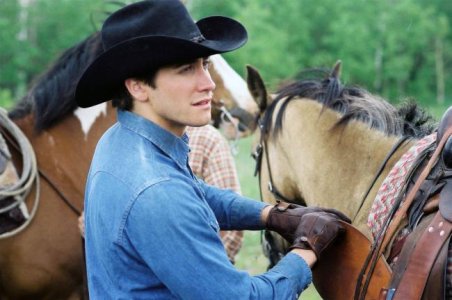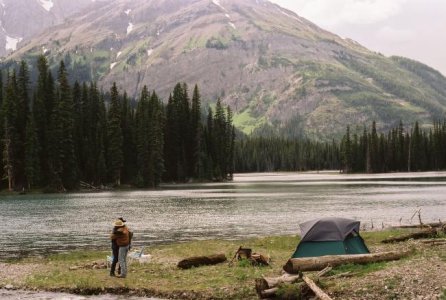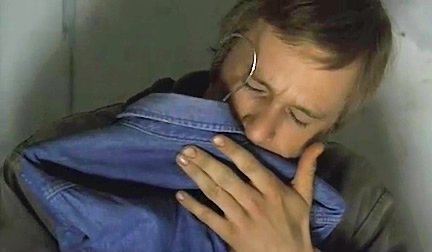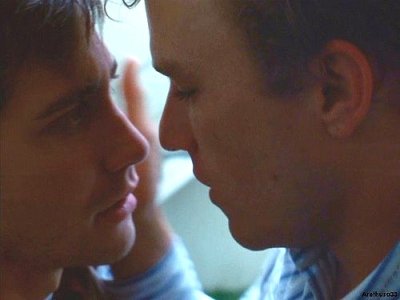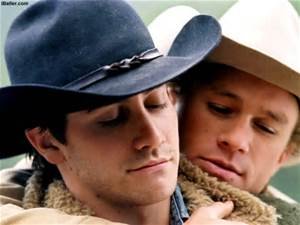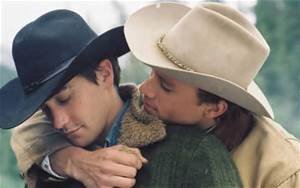Thank you Stowe!
I love the article. I'll be reading the second one shortly. It's hard to believe it's been 10 years. I also remember how brokenhearted I was in January of 2008 when I heard that Heath Ledger had passed so tragically.
It's rather coincidental that a copy of the book just recently came into my possession long enough for me to read it. My most sincere compliments to the author Annie Proulx. They are not kidding when they say it is based on a short story. lol The whole tiny hardcover book is only about 60 pages. Not the basic 300+ pages we might imagine after seeing the movie.
A straight readership recognized that this was an extraordinary story which had never been openly discussed before. While the characters and the storyline may be fictitious, there was an instinctive awareness that real life stories along those same parameters had been playing out for centuries. I believe that in their heart of hearts that even a straight readership recognized this fact. It took a straight female writer to take a subject about something so iconic as the cowboy tradition of the American West, and weave a fictional story down a non-fiction path that had previously been kept in the shadows and out of public awareness.
Having read the book, it's so much more obvious what a masterpiece the screenplay adaptation was. The script writers really did add flesh to the bones of Proulx's characters. Without the background stories of the men's home lives, the story would not have worked in movie form. The Jack Twist character (played by Gyllenhaall) was also cast with someone handsome, as opposed to Proulx's vision of Twist being a homely man. Just about all of the most iconic and famous lines of the movie however did come directly from the book.
I can certainly relate to Dianna Ossana who co-write the screenplay. In Stowe's link above she describes the first time she saw both actors on the set in costume. She says she was so overcome by emotion that she had to go sit down for an hour to compose herself. After reading the book and writing the script, it had to have been an extremely emotional moment to see these characters alive and standing in front of you as real people. Knowing the whole dramatic story these men were about to go through together, it had to feel like such a heavy burden and responsibility to do well by them and give their life stories the dignity, respect and justice they deserved.
On the day of the ruling on gay marriage, many pundits were at a loss to describe one key moment or factor in recent history to account for how quickly public opinion had shifted in favor of gay civil rights. It seemed an astonishing speed that gained momentum in only the last 10 years or less. There is not any one specific key moment that I can point to myself. I do think that the tremendous mainstream media coverage we witnessed in the murder of Matthew Shepard was a shift in our favor.
The modern and much more global technology of journalism had reached a point where previously something that would have been covered and disseminated as only a local or regional story, could get fast exposure nationwide. In that sense I've always felt that Matthew was a martyr for the cause...and that we are indebted to him and his family for their contributions. Up to that point gay people had been getting assaulted and even murdered for ages. On the face of it, Matthew's story was not all that uncommon. Two guys (or a group of guys) go out and happen to meet a gay guy...gain his trust by telling him they're gay too...proposition him and lead him to believe they might go somewhere for sex or pot...then once they have him alone and vulnerable---they assault, rob, mutilate or kill him. We gay people already knew those dangers were out there. Straight society really had not had to face the ugliness of that level of hatred and violence before.
Why the story of his murder was not buried in the fifth page of the local Laramie Wyoming newspaper or just a brief mention on the local evening newscast, I'll never know. But newspaper editors and others in television news media somehow realized this was a story that "had legs." It went from being a local small-town Wyoming story, to a national story, to an international news story, in the blink of an eye. Larger society was shown in more graphic detail the violence perpetrated against minorities (with gays in particular in this case), why "hate crimes" statutes were needed in the first place, and how they were applied in the court system.
Of course another key cultural moment in popular culture was the release of Brokeback Mountain. The idea that a movie which encompassed a western, a romance and a drama about gay characters, could come to be treated by the general public with such respect and mainstream critical acclaim, was just shocking for the time period. There were so many contributions large and small that led us to where the gay civil rights movement is today. Brokeback Mountain is certainly one of those cultural touchstone moments where you really did feel that a historic seismic shift (however small or large it might have seemed at the time) had taken place.













